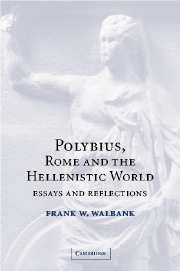Bibliography
Published online by Cambridge University Press: 22 September 2009
- Type
- Chapter
- Information
- Polybius, Rome and the Hellenistic WorldEssays and Reflections, pp. 322 - 341Publisher: Cambridge University PressPrint publication year: 2002

